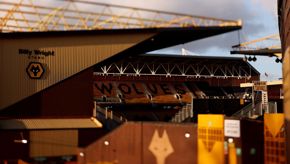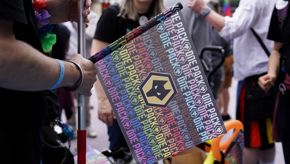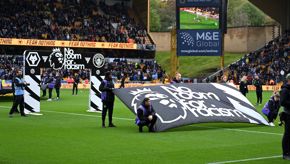Wolves prides itself on being a club for all people, with Molineux changing throughout the years so the stadium is now being more welcoming for supporters from all diverse backgrounds than ever before.
Throughout One Pack Week 2024, five Wolves supporters from a cross-section of backgrounds have discussed how their differences have not always made them feel welcome in football, but how – thankfully – times are changing. Although there is still a long way to go until the beautiful game truly is a safe space for all.
Wolves Women winger Destiney Toussaint, disability men’s first-team captain Daz James and supporters David, a member of the LGBTQ+ community, and father and son duo Mahesh and Kian, who are of south Asian heritage, have shared how the club has changed for the better since they first started playing football and supporting the Old Gold.
Click here to read part one of this three-part series celebrating One Pack Week.
**
Mahesh: “I was definitely put off attending football matches when I was younger, but it’s a totally different kettle of fish to what it was. Now, you see a much more diverse range of people in the stadium, but back then, I was scared to come myself for the first few years and then when I first started coming in the 80s, sometimes you were scared to leave the ground. You really had to watch your back, but I just tried to keep away from all the trouble. You knew it was going to kick off and you just had to wait for it all to finish and then you could go out of the ground or try and get out before the rest of the crowds went out and miss it all.”
David: “Football has become more diverse as time’s gone on. When I used to come down to Molineux there was some hideous chanting that would happen – racism and sexism – but we are eradicating that. There is still a problem with homophobia in football, sadly, and there was the recent documentary that Rylan Clark did which articulated that really well. There are also people who don’t feel welcome at Wolverhampton Wanderers, and perhaps they don’t feel safe coming to the games, maybe they don’t feel safe or welcome when they are here, or maybe they even self-censure. They maybe think, ‘I would like to come to the match, but would I be safe? Would I be welcome?’ They don’t know, so they don’t. I don’t want that.”

David: “We’re talking this week about One Pack, and I don’t want anyone to be excluded from this fantastic game because football is an amazing game, and Wolves is an amazing club, and I want people to be included. If we can set up a LGBTQ+ supporters’ group and say, ‘Just come. Just be a part of it. We’re here for you, there’s a community, we’ll meet with you, we’ll sit with you if you need it, and we will create a safe environment for you to be part of’, which I know other clubs have done, and if we can create that at Wolves, it would be fantastic.”
Daz: “There’s been an amazing change in disability provision from when I was younger. Massive. Growing up in the late 80s and early 90s, being disabled wasn’t accepted as much as it is these days, but I think the turning point was the 2012 Paralympics. Everyone was telling me that I should be doing that, and they recognised that I’m different from them and that I would be good enough to go and do this, that and the other, despite my disability, and I think that was a massive point in my own mentality, but I’ve also seen other people impacted by it. We’ve got people involved in the disability team now who are slightly younger than me, but they grew up with disabilities being normalised – ‘he’s got an artificial leg, but he can still play football.’”
Destiney: “Women's football has seen a massive change. Girls now are playing football from five years old and onwards, which is wonderful to see. They are getting the coaching from an early age so when they get older, they’ve got a higher ceiling to improve. They’re also getting the opportunity to play all over the world, and these opportunities are massive and a really good thing for the girls coming through. But I’m glad that I was able to play a part in paving the way, so to speak, when opportunities weren’t like they are for girls today.”
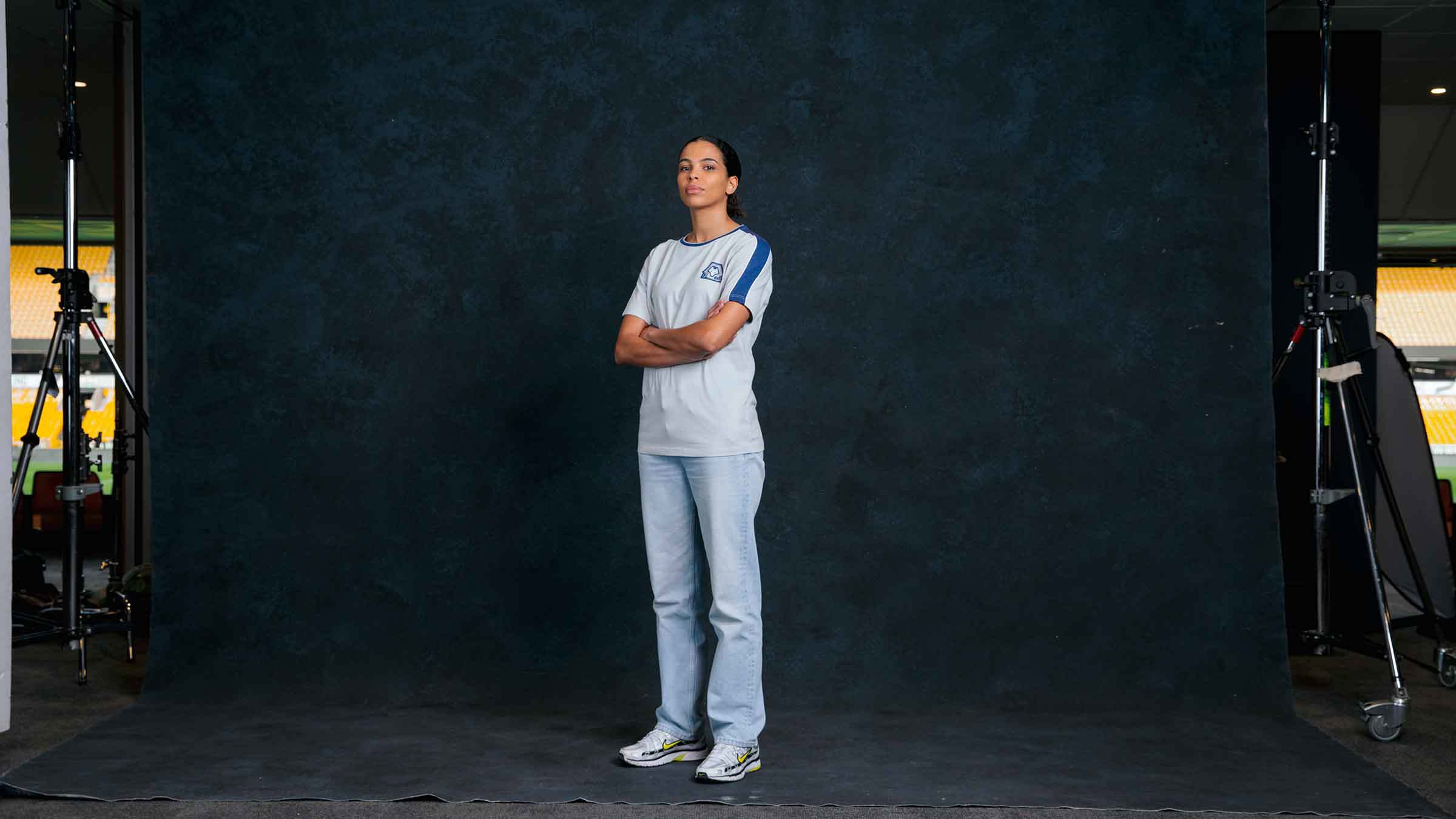
Destiney: “We’ve now got to the stage when any young girl knows if they are good enough then they can make a career out of it and play as a full-time professional football, which is absolutely fantastic. This has been helped by the success of the England women’s national team, with that success having helped the game grow, so to see that growth is fantastic. If you are an aspiring young female footballer, then it’s real and you can have the opportunity to do it.”
Daz: “When I first joined the disability team, we had one adult’s team and a couple of kids in the under-16s and we were just starting an under-12s. Now we’ve got a couple of teams at under-12s, three or four teams at 16s and four men’s teams. It’s just grown and grown and grown, which has been amazing to see, and it’s been amazing to see the things the Foundation do.”
David: “I mentioned before that when I used to come down to Molineux when I was younger, there was some absolute horrific things being said, and I’m not going to say there isn’t a problem anymore, but it certainly isn’t on the level it once was. I don’t think there is a particular stigma associated to Wolves within the LGBTQ+ community. We’re all part of a catchment area in the West Midlands where our local rivals – dare I say our nearest and fiercest local rivals – have an excellent LGBTQ+ group. It’s not a case that it’s the locality of the club, and there’s no reason why this shouldn’t exist.”
Mahesh: “I have no issues at all in bringing my children to matches now. There was this mentality in south Asian culture that a boy is superior to a girl, but I’ve never gone along with that. I’ve treated all three of my kids the same which includes bringing them all to matches when I thought they were old enough. I remember when I brought my eldest daughter to her first game and I tried to build it up how brilliant it is to come to Molineux, but I think the first five or six games she went to just happened to finish nil-nil and she was so bored she said she wished I didn’t treat them all equally!”
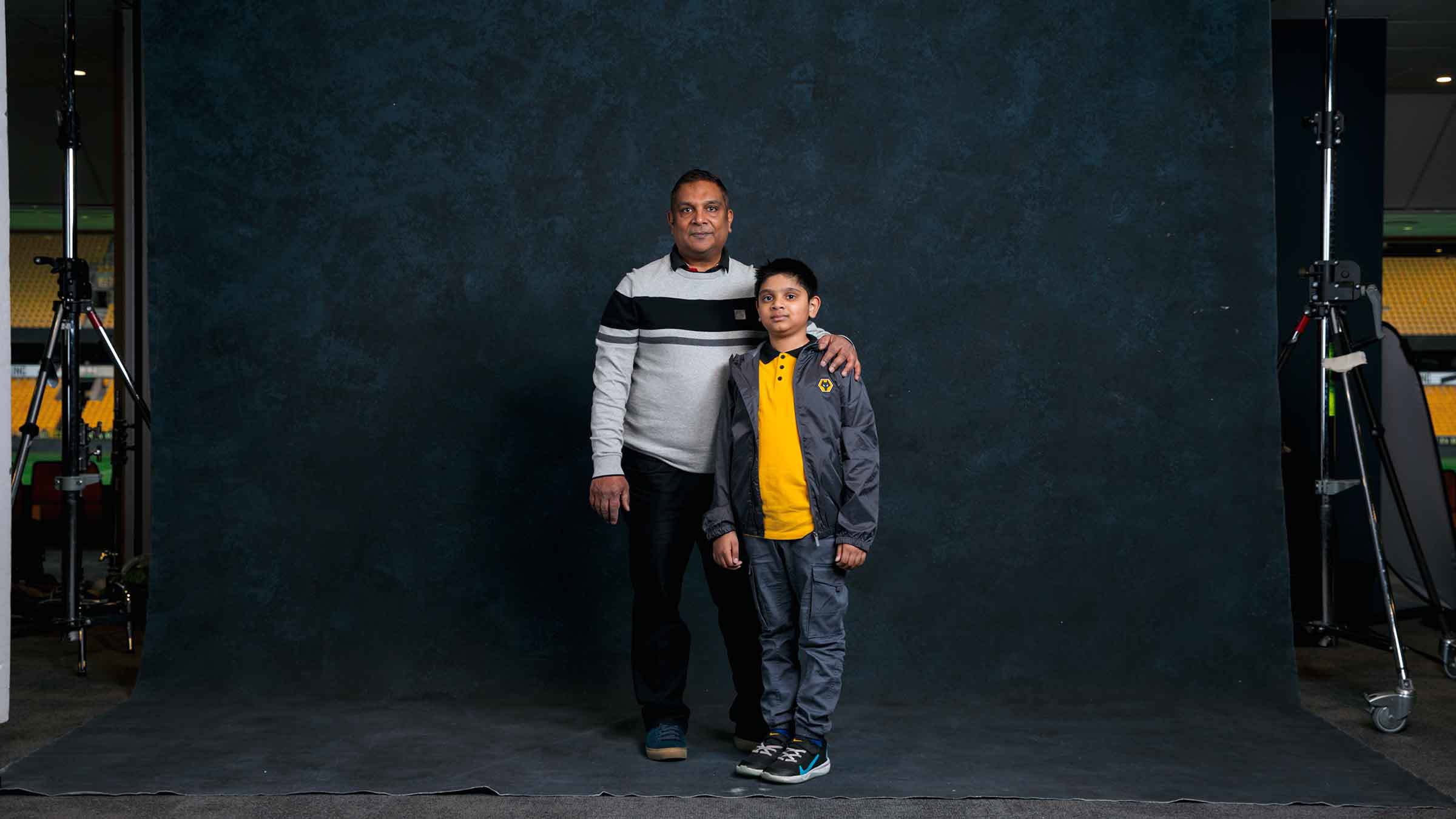
Daz: “Playing in the half-time disability game against Norwich City was nerve-wracking because I didn’t want to lose. It was a once-in-a-lifetime opportunity, and I wanted to come away with the win so I could say I’d played at Molineux, in front of the fans and we’d won. But I remember getting really emotional because the fans were singing Wolves songs for us on the pitch. I’ve been to every game now that the Foundation have put on at half-time and the fans are just amazing. I love it. On social media after the game, you can see all the comments and the love you get from the fans and it’s just epitomises ‘One Pack’.”
Destiney: “I’m really enjoying my time here. When I first came here and had a chat with Macca, the manager, we spoke about the club as a whole and what the goal was, which was to keep pushing up the leagues and get into the Championship. Unfortunately, it hasn’t happened, as yet, but I believe it will and it’s a work in progress and we’ll get there eventually. I hope I can be here as long as I can and help the team get to where they want to be. But in terms of professionalism, it’s fantastic. We have a great training ground and get access to the same facilities as the men’s team, we’ve got a great team of staff, and we’ve got the foundations there to go a long way.”
We're all unique. We're all Wolves.
